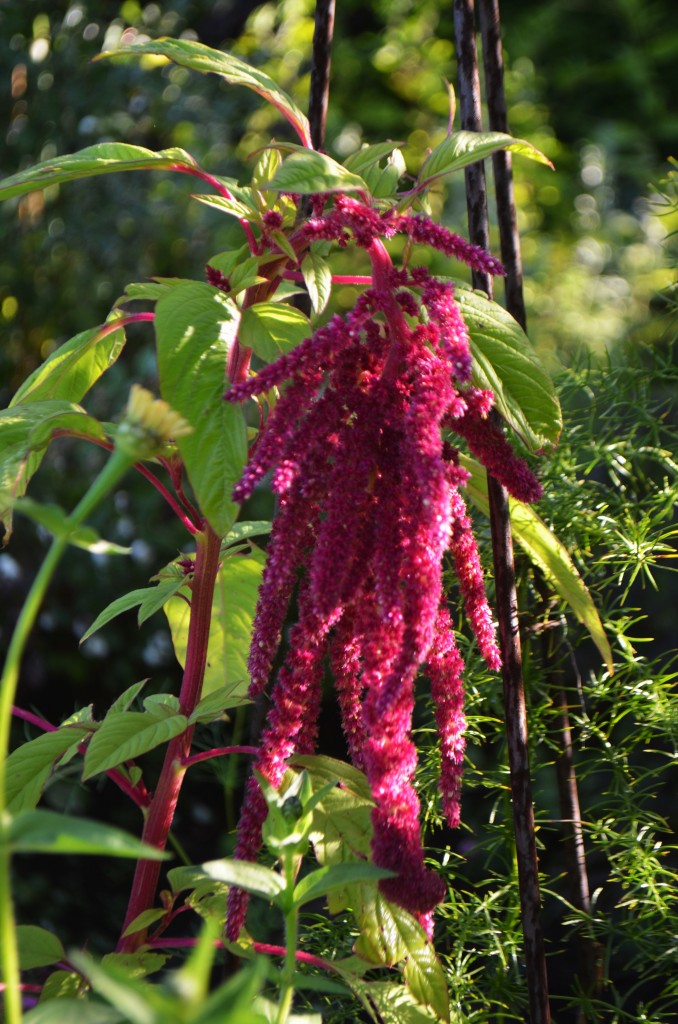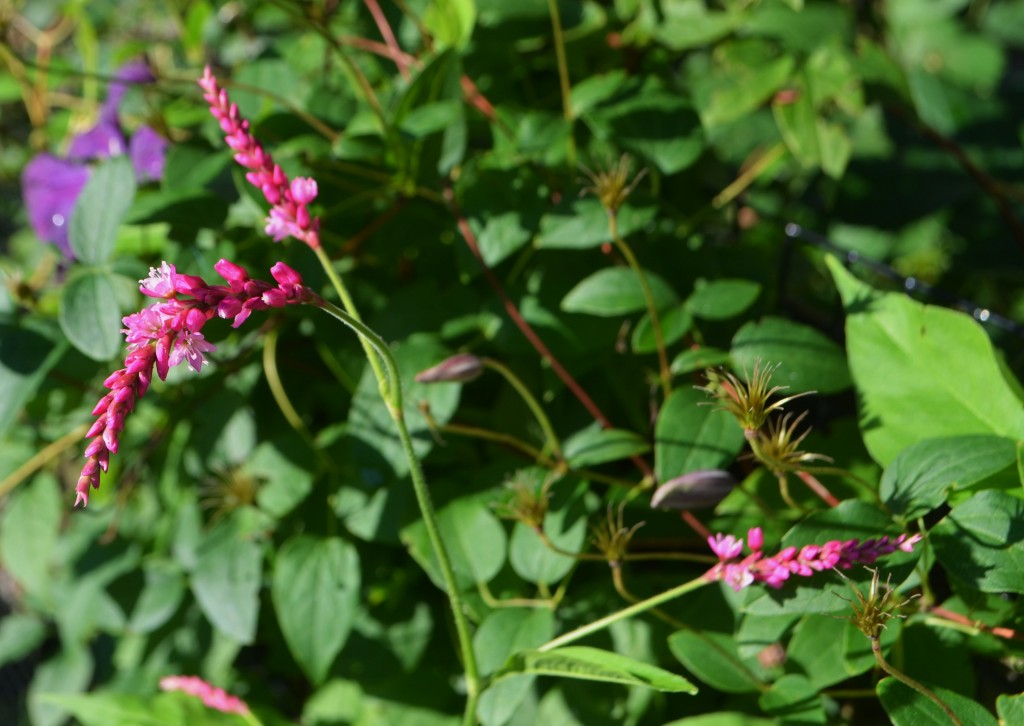Let’s face it, I have a love – hate relationship with Botanical Latin. As someone who people turn to for help identifying or finding plants, common names can be the bane of my existence. For instance, right now in late summer many non-plant people will refer to every blooming yellow daisy shaped flower as a black-eyed Susan. They may be , they may not. When I teach, I make it clear as day that we need the established system of binomial nomenclature written in scientific Latin so everyone understands the exact plant we are referring and I actually use two rudbeckia ( ahem, black eyed-Susan) species as examples of what can happen when we don’t.
I get it,…. I so get , that’s why I teach Botanical Latin , use Botanical Latin, and encourage others to do the same. But it doesn’t mean I have to like it.
Right now blooming outside are two wonderful examples of why I adore using the common names of garden plants over the Latin.
Love-lies -bleeding: amaranthus caudatus is an annual plant I grow to use in flower arrangements. In the Victorian language of flowers it is used to represent hopelessness in love ( or otherwise) and it’s long blood red tassels are certainly a very dramatic representation of that emotional state. Weeping out of a container planting it will catch any eye that walks past. Although there are cultivars that look like dreadlocks or ponytails, I stick with the common one because it makes my heart feel weepy too. In many situations in my eccentric little life, I sing a little tune appropriate to the circumstances ( a trait I inherited from my Dad and wickedly passed along to my children). When I am in the garden and walk by it ,this plant always gets a few words of Funeral for a Friend by Elton John. The whole song is 11 minutes long , but it is the chorus that will stick in your head for days.( You are welcome 
Kiss me over the garden gate: persecaria orientalis I may not seem the romantic, but trust me, I am to the core , and any plant with the words “Kiss Me” in it’s name gets a place in the gardens here.The lipstick pink flowers of this knotweed arch atop long stems that if planted near a garden gate will flirtaciously drape over , hence the common name. How nostalgically delightful to think of two young sweethearts parting for the evening sneaking one last kiss over the garden gate . In a time when sex and sexual innuendo permeate absolutely everything I pine for the simple romance of the past , and this conjures it by the bucket-load. How about a little Sixpence None the Richer to help set the secene? Perfectly old fashioned , lemonade on the porch drinkin- kissin over the garden gate music.
Latin can’t even compete.

